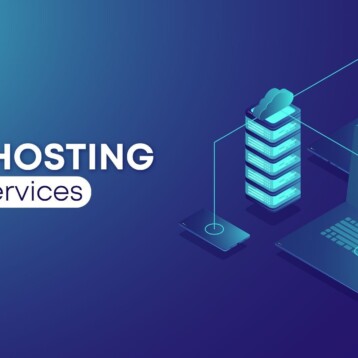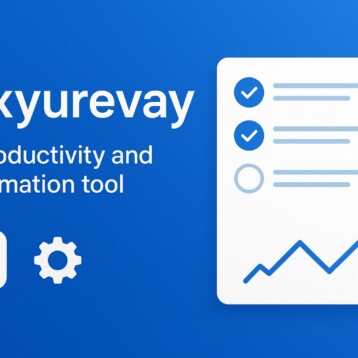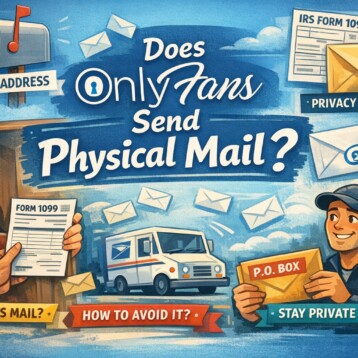
Consumers are arguably the most important stakeholders for the success of any business. In e-commerce, in order to stand out, you have to do more than just giving your clients a good e-commerce shopping experience. For instance, you can drive more traffic by adopting effective personalization strategies.
Personalization is one of the most effective trends in the e-commerce industry. When you give your customers a personalized experience, you are likely to retain them as well as attract many online visitors to make them loyal customers too. Thus, personalization improves e-commerce sales as it increases customer conversion rates.
How Personalization will Help Boost Your E-Commerce Sales?
- Tracking Shoppers’ Navigation and Purchase History
You should know what your customers like in order to help you develop personalization strategies that will win you more return clients. Therefore, you should incorporate an effective tracking tool in your website to help you capture and analyze your consumers’ previous purchase history. Moreover, you will determine their browsing patterns. If you know their purchase history and navigation patterns, you can suggest personalized products and services to them.
- Real-Time Engagement
Using action-based e-commerce personalization tools such as Magento 2 Form Builder or similar helps change the items that consumers see on your website based on the actions that they take, such as removing or adding products to the cart, answering surveys and viewing products. Creating a personalized shopping experience may also include tools like links to relevant content, similar content, buy later list reminder.
Personalized product and service recommendations are likely to help online shoppers to discover items and services faster and increase your e-commerce sales conversions. If you have infused a website behavioral tracking tool for your personalized marketing strategy, you can avoid losing potential clients by making them have a real-time shopping experience.
For example, if a visitor lands on your online store, browse various men’s jeans, adds a few to the cart and searches for a white shirt, your website behavioral tracking tool should be designed in a way that it understands the keywords based on the users’ requirement. Therefore, it should give relevant options at the top of the user’s search results. As a result, the consumer will feel enticed as you will have saved their navigation time and increased their engagement. The use of proper tracking tools ensures that you know what specific shoppers like, and you can easily customize their shopping experience. The more data you collect about your clients, the more personalized your e-commerce website can be.
The majority of currently existing e-commerce platforms have an ability in one way or another to personalize the messages that are sent to customers based on their browsing actions through email, push notifications and other means of communication. While powerful e-commerce platforms such as Magento or PrestaShop will have personalization features built-in, smaller platforms such as Shopify, BigCommerce or Wix will have limited functionality (e.g. abandoned cart emails) and will require 3rd party e-commerce tools or plugins to be used in order to achieve more complicated tasks and a better online shopping experience. A fantastic website I came across recently that provides an overview and allows you to compare e-commerce platforms is SupplyGem.
- Rewarding Brand Ambassadors
It is worth noting that most consumers buy a product if it is recommended to them by their friends. If you have great products, your customers are likely to rave about them. You should appreciate their efforts by improving their shopping experience. For instance, you can personalize their shopping experience by rewarding them with discount coupons and codes when other shoppers click and buy your products from the links that they share on the social media. Tools such as the Social Coupon plugin (say, for WP) can help you automate that. As a result, you will retain more loyal customers and win many visitors.
- Email Acquisition
You should capitalize on strategic tools such as email-retargeting and triggered email campaigns as they are some of the most important sources for personalization. You should ensure that these tools are customized to fit individual navigation and shopping behaviors of most of the consumers who visit your website. For instance, your tool should be designed in a way that when you get a user’s email address, it should send an introductory mail which includes a summarized description of your business, as well as payment and shipping policies in place in a personalized manner. When you personalize your email campaigns, you are likely to increase your open rates and click-through rates. It is worth noting that personalized emails generate much higher revenue per mail than non-personalized ones which your customers will probably ignore. Even though most of your customers know that the personalized emails are also automated, they feel special when they read them as they relate to the products and services that you present to them.
As a result, the customer will tend to trust your e-commerce and he or she will be motivated to shop from your website and keep visiting it. Furthermore, you may track the customer after sometimes (say one week) and send them another mail—containing a promotional discount coupon code—if they will have not purchased any item by then.
- Offering Discounts Codes and Coupons
It is worth noting that just as customers do for the brick and mortar stores, online customers “window shop” by browsing through your website and purchasing products and subscribing to services that they like. If you know their browsing pattern, you can develop for them personalized discount coupons. For instance, you can give your loyal clients who have previously purchased several items from your online store, or you may give a coupon to a customer who has already added some items to the cart but has not finalized the purchase. Such discounts have a great potential of winning more return customers who in turn will recommend your online store to their friends, family and colleagues.
- Personalization Through Mobile Phones
Mobile devices are increasingly becoming very personal in the modern world. In fact, most people use their phones for browsing through your website and shopping online. You are likely to give a personal touch to your clients if you use effective personalization strategies for their mobile phones. However, do not bombard your customers with several messages within a short period. If you give your clients a personalized attention in your offers on their phones, you are likely to increase their engagement, thereby boosting your e-commerce sales.
- Personalized Packaging
Even if you have outstanding pre-sales services, you have to ensure that your customers receive a great after-sale experience. Interestingly, the way you package your products may influence the decision of a customer to return or avoid your store. Customizing your packaging offers a personal touch to your clients. Furthermore, if you add promotional discount codes or coupons with an inviting return policy, you are likely to make more return and loyal customers.
Conclusion
E-commerce is a very competitive industry. Online shoppers are constantly searching for a better shopping deal, but they have a low attention span. If you want to succeed in this platform, you have to employ effective strategies that can help you involve your clients and retain more loyal customers. Personalization is one of the most powerful marketing tools and the best trend in e-commerce platform. If you implement this strategy effectively, you are likely to create better customer relationships and enhance their shopping experience, which will, in turn, increase your sales.










